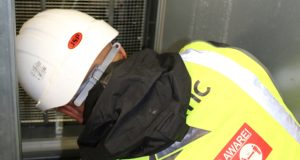The Engineering and Building Services Skills Authority (EBSSA) is inviting multiple installer disciplines to begin codifying standards and competences for the sector. This initiative is part of wider industry and government efforts to ‘raise the bar’ on individual competence within the built environment in line with the new post-Grenfell competence regime established by the Building Safety Act.
At a meeting today (29 January), co-hosted with the Construction Leadership Council (CLC), EBSSA formally launches the Engineering Services ‘Super Sector’: the entity charged with overseeing progress across all mechanical, electrical, plumbing and associated trade disciplines.
EBSSA was convened last year by Actuate UK members together with other leading sector bodies, such as BEAMA, CIPHE, TICA and the standards organisation MCS, to provide a credible authoritative voice for skills across all engineering and building services.
Key objectives of this skills coalition are to provide analysis based on transparent data on the sector skills demand and supply, and utilise this evidence to highlight needs, educate, influence policy makers and providers to close the skills shortage gaps with measurable interventions.
Underpinning this work is a shared commitment to support the transformation towards a safer and healthier built environment and achieving UK’s net zero targets within both domestic and non-domestic buildings. As well as Actuate UK and EBSSA member organisations, this will involve commitment and collaboration from right across engineering and building services, including employers, trade union representatives, other specialist trade bodies, certification organisations, professional institutions, education and government.
Andrew Eldred, ECA Chief Operating Officer and Working Group 2 Engineering Services Super Sector lead, said: “Most trades in engineering and building services already have some elements of the new competence regime in place. This EBSSA-led initiative offers them the opportunity to review and codify what they already have and fill in any gaps. Once we have a series of comprehensive, industry-endorsed competence frameworks in place, the next step must be for government, clients and main contractors to apply their power to help ensure these frameworks are promoted, implemented and enforced in practice.”
Marion Marsland, Chief Executive of TICA, which has already concluded work on a thermal insulation competence framework, said: “The route for thermal insulation competency has been defined for some years however, as part of the coalition with EBSSA, TICA has been able to provide installer competency in a consistent format to ensure that wider industry has a clear and transparent understanding of how competency can be achieved within the thermal insulation sector. At TICA, we are delighted to be working as part of a wider community within construction to achieve a broader understanding of our skill discipline.”
At Facilities Management Journal, our commitment is to deliver content that meets the needs and interests of our readers. To ensure we continue to provide valuable insights and engaging articles, we invite you to participate in our Reader Survey.
Your opinion is invaluable in shaping the future direction of our magazine. By sharing your thoughts, preferences, and suggestions, you play a crucial role in enhancing the content and overall experience for our readership.
To access the survey, please click on the following link: https://www.surveymonkey.com/r/9XVVXYP.





